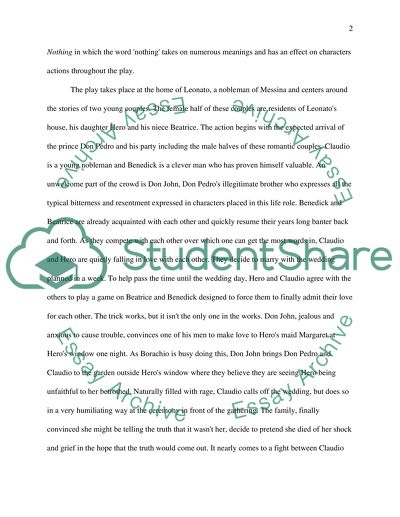Cite this document
(“Nothing in Much Ado About Nothing Essay Example | Topics and Well Written Essays - 1500 words”, n.d.)
Retrieved from https://studentshare.org/english/1422551-nothing-in-much-ado-about-nothing
Retrieved from https://studentshare.org/english/1422551-nothing-in-much-ado-about-nothing
(Nothing in Much Ado About Nothing Essay Example | Topics and Well Written Essays - 1500 Words)
https://studentshare.org/english/1422551-nothing-in-much-ado-about-nothing.
https://studentshare.org/english/1422551-nothing-in-much-ado-about-nothing.
“Nothing in Much Ado About Nothing Essay Example | Topics and Well Written Essays - 1500 Words”, n.d. https://studentshare.org/english/1422551-nothing-in-much-ado-about-nothing.


